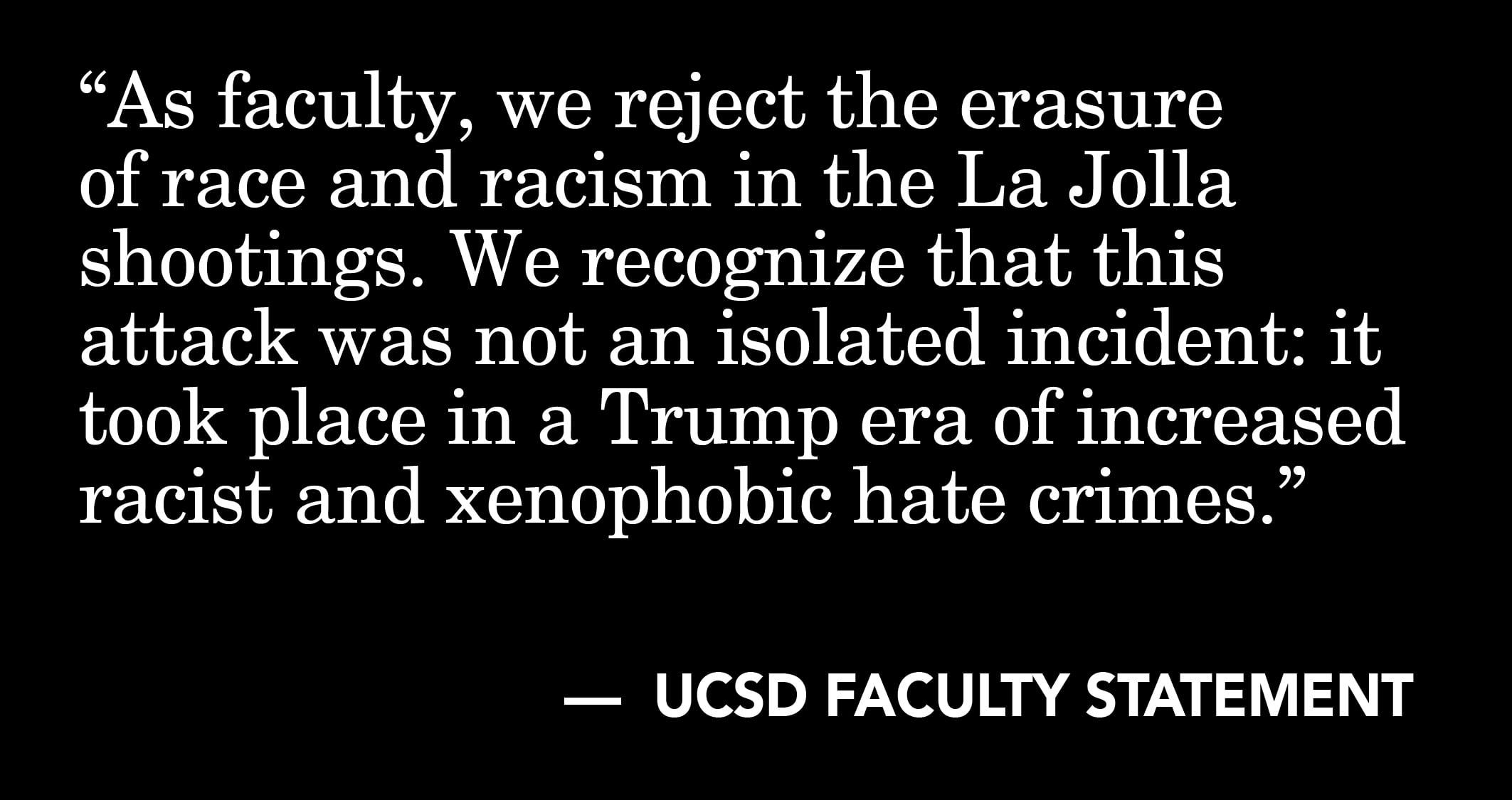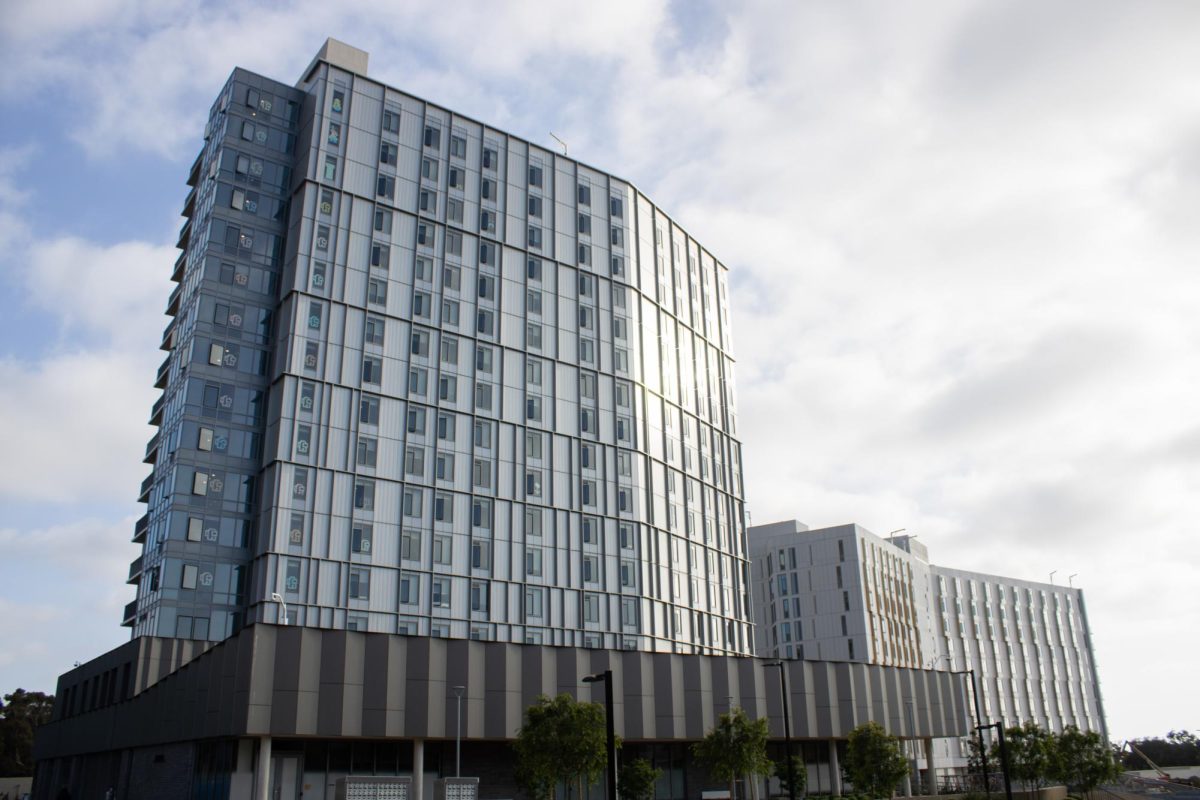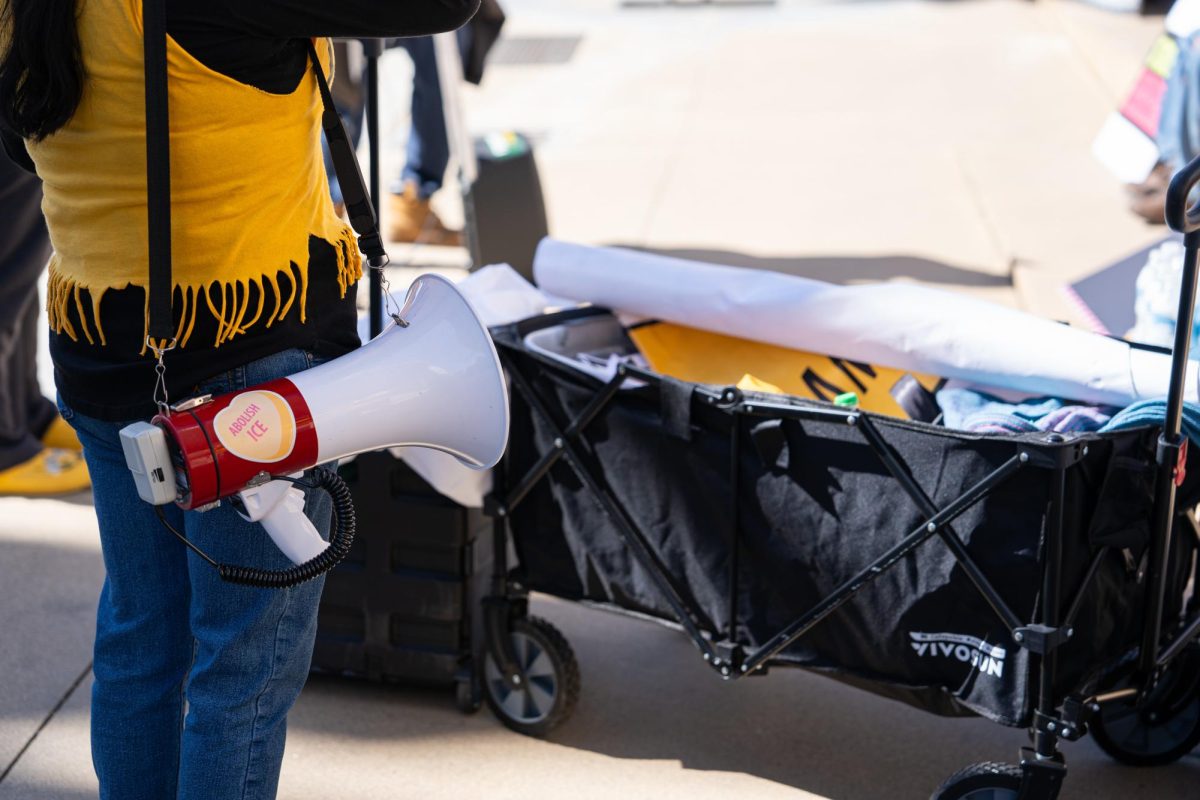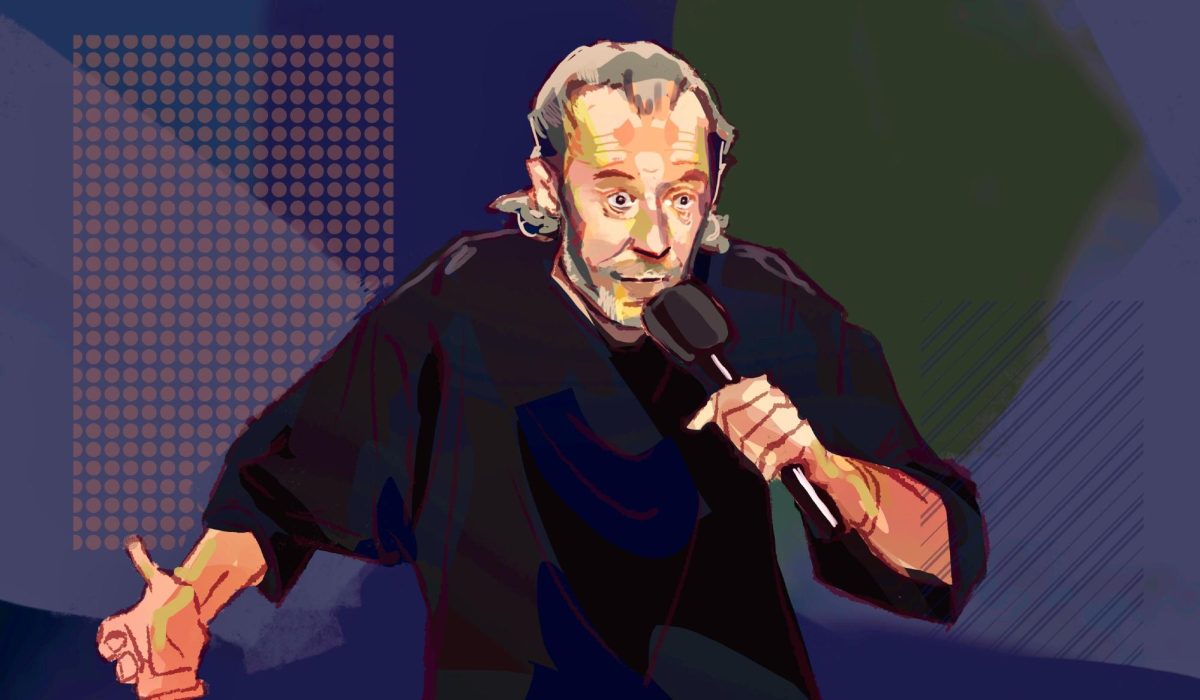Dear Students and Members of the Community,
As UC San Diego faculty, we write in response to the mass shooting that took place on April 30 at La Jolla Crossroads, an apartment complex just a few minutes from campus, where Peter Selis, the shooter and a white man, opened fire on a pool party gathering, shooting seven individuals. A black woman was killed — Monique Clark, a mother of three — and all of the victims were wounded. Although this tragic mass shooting and attempted mass murder did not take place on official university property, it took place within a community context very much defined by UCSD. UCSD sits upon traditional Kumeyaay land and is situated in University City, which could not be more aptly named, given the interdependence between UCSD and the neighborhood that houses a substantial number of its students, faculty and staff. We write this open letter to address the complex interweaving between the university that employs us, the disputed lands on which our work takes place and the community setting in which we work. We also write to question and contest the narrative frames through which this tragic incident is being understood, rationalized and dealt with.
Official statements from UCSD have taken a broad, general approach in responding to the incident, suggesting that students avail themselves of existing mental health services, without acknowledging the ways in which students of color have been directly affected by this attack. We write in order to bring to light what we understand to be the inherence of race to this mass shooting event in the community in which we work and live, and to question the immediate medicalization of this violent public event, which we argue cannot take place without a thorough accounting of the racist nature of this crime.
We reject San Diego Police Department Chief Shelley Zimmerman’s assertion that those targeted by Selis were victims of proximity rather than of a racist hate crime. As many have pointed out, and despite the fact that University City was described in numerous news reports as a “diverse” neighborhood, it is majority white and has a less than 2 percent African American population and a less than 10 percent “Hispanic” population. The remarkably low percentage of African Americans is particularly noteworthy, given that five out of the seven individuals shot by Selis were African American, one was Latino and one was white. Despite this fact, less than 24 hours after the attack, Zimmerman held a press conference in which she foreclosed the possibility that this was a hate crime, choosing instead to humanize the killer by citing his financial and “romantic” difficulties. The police have continued to gloss over race as a factor in this attack, despite eyewitness and survivor accounts revealing that the shooter intentionally spared a white woman who was trying to aid Monique Clark. Numerous reports published in the San Diego Union Tribune have puzzled over what Selis’ motivations could possibly have been since he was not widely known to be affiliated with white supremacist organizations or ideologies; we also question the finality of the either/or logic with which a motive was definitively established.
As faculty, we reject the erasure of race and racism in the La Jolla shootings. We recognize that this attack was not an isolated incident: it took place in a Trump era of increased racist and xenophobic hate crimes. Furthermore, we understand that white supremacy is a diffuse ideology that exists broadly in American culture and is only on occasion evident in the form of organized, racist fraternal societies and organizations. Chief Zimmerman and her deputies cannot see racism unless it exists in the form of a racist hate group; we understand racism to function far more effectively as a daily social order that determines and organizes social networks, family structures, neighborhoods, schools, job opportunities and propensity to or security from early death.
We know that students of color at UCSD face myriad forms of violence in their daily lives, ranging from classroom and workplace micro/aggressions, to hate speech and racist actions on the part of some student leaders and faculty, which has often gone unrecognized and thereby unaddressed by the University. We are therefore called upon to step up and commit to the struggle against racism, violence and oppression, in our many roles as faculty members — as teachers, advisors, researchers, community members and employees of the University.
Signed,









Bruce Gelb • May 31, 2017 at 9:49 pm
These people would rather see President Trump fail than to watch the US succeed.